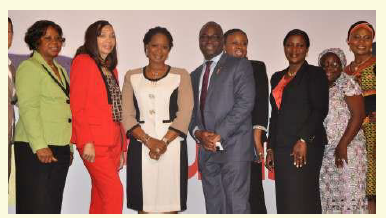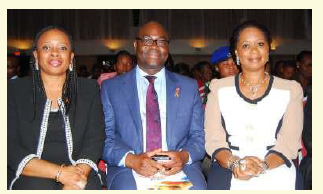Mrs. Amosun advised parents of children with autism to accept the emotional brunt attached to the disorder and tasked the parents to take proper care of affected children to reduce discrimination, saying autism could affect anyone, irrespective of ethnic, race or social backgrounds.
Speaking during the Advocacy Programme for Autism organised by Guaranty Trust Bank held at MUSON Centre, Onikan in Lagos on the 9th of April, 2013, the wife of the former governor explained that the brain disorder usually affects a child’s communication, social interaction and behavior, hence making it difficult for child affected to communicate and relate well with others.
She noted that the disorder affects one in every 88 new born and the most obvious signs appear during the first three years of life. She also noted that the disorder is four times common among boys than girls with symptoms ranging from mild learning and social disability to severe impairment. “The ultimate power to live with and overcome autism lies in our willingness to love the child with autism absolutely and unconditionally. However, with unconditional love and understanding we can guide them to intended destination and help them achieve great things,” she said.
She commended the efforts of Guaranty Trust Bank’s Autism Orange Ribbon initiatives for the sensitization campaign geared towards creating awareness on autism to enable people know autism is no demon-afflicted disease or witchcraft but a spectrum disorder that causes disability in children, pointing out that government alone could not meet the health need of the people and called on individual and private organisations to join in the crusade.
Also speaking at the occasion, Founder, Children Developmental Centre, Dr. Yinka Akindayomi called on government at all levels to include autism in their policies, actions and services in their health care delivery programmes, saying proper assessment of our children would help in dealing with the disorder.
She advised the public to accept children with autism as human beings who also deserved a chance to live a meaningful life, adding that solutions to the disorder could only be real when adults with autism were seen as valid citizens, form part of Nigerian workforce and have true community membership.



